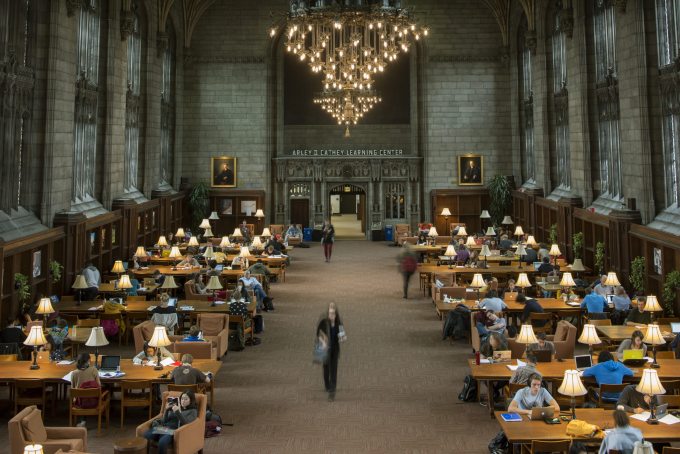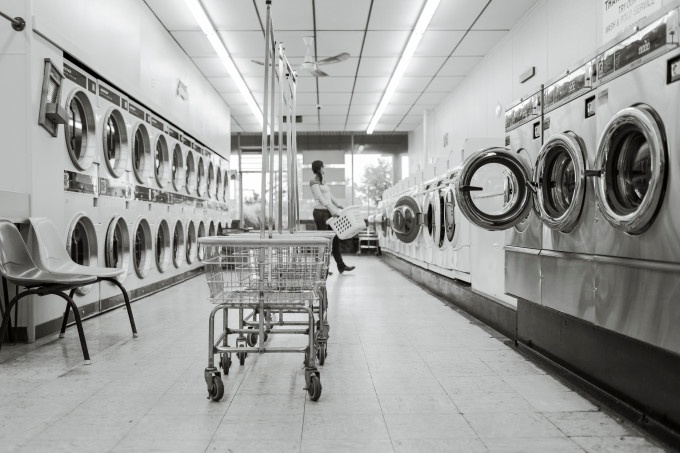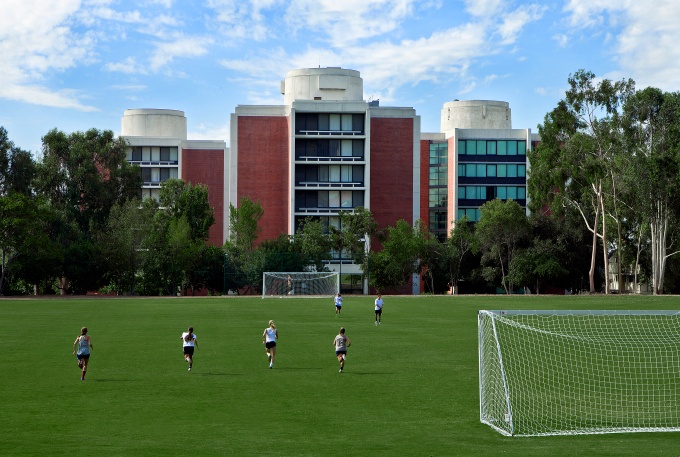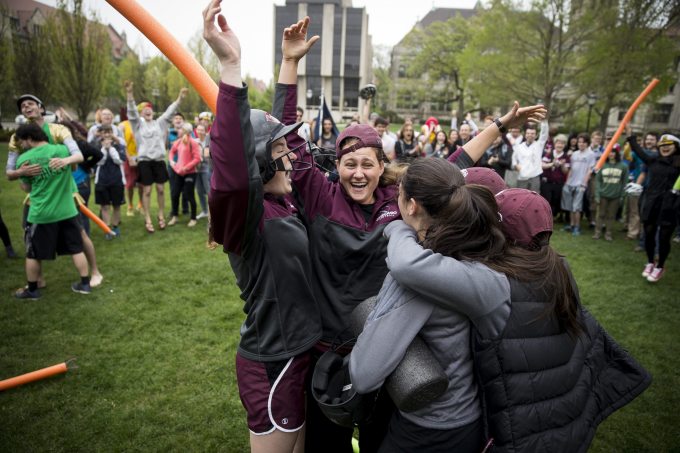What do parents wish they had known before their children headed off to university in another country? What advice would they give to other parents whose children will be going through the process in a year or two?
In this post, the UWCSEA University Advising team provide an overview of a wide range of topics that parents have found themselves considering as their children fly the nest. Some of these are unique to Third Culture Kids (TCK’s) - others of them, you’ll be pleased to know, are universal, regardless of where or how you grew up so you (and your child) are not alone!
Putting the change in context
All of us who raise our children overseas have weighed up at some point the opportunity cost of expat life. Of course, there are many obvious benefits – the shared adventures, exposure to new cultures, and travel to places that would have been impossible if we had stayed at home. These are all stimulating and rewarding experiences that can turn our children into confident citizens of the world and bring families closer together.
However, complications can arise when TCK’s go off to university, typically on the other side of the world in a country that is 'foreign'. Even for students returning to their passport country, some degree of reverse culture shock seems inevitable. Their prior moves have taken place within the comfort zone of the family circle. The solo move to another continent and culture can bring some unanticipated adjustment issues. For parents, this is also the time when the implications of expat life can become acutely painful as children are now further away than they would have been if the family had stayed ‘home’. As one mother put it, her bleakest moment was the realization that her family 'would never be quite the same again', and this can be particularly painful for those whose children ‘fly the nest’ and the country!
At international schools like UWCSEA, where diversity is celebrated, students are bonded by their cross-cultural experiences. The move to a more homogenous culture, where the social codes are unfamiliar, can make them feel lost and uncertain for a while. It is key to approach the experience with patience, open-mindedness and a sense of humour – qualities needed when engaging with any new culture.
Over the years, our alumni have highlighted three key areas that they typically struggled with in the first year of university:
- academic adjustment
- life skills and managing practicalities
- social and emotional adjustment
Some of these are common for all first-year students, but there are additional layers to be unpacked if your child is a TCK or will be an international student at their university.
Advice shared by alumni parents at our annual parents’ transition forum has provided some practical steps for parents to help ease the transition for their child as they launch into the next, independent stage of their lives. We are happy to share this with you here.

The amount of reading and self directed learning can be an adjustment for students, even those who have been through a demanding pre-university course such as the IB Diploma.
Academic adjustment
The good news is that surveys suggest that students who have successfully completed an IB Diploma are generally very well-prepared academically and rarely find the work too difficult conceptually. However, what can surprise them is the amount of reading they are expected to cover on their own. The IB Diploma is a very good university preparation programme, and Diploma graduates often find they are a step ahead of their peers, who may have never done an independent investigation or research paper.
Time management
At the same time that they are transitioning into a new academic culture, students are also learning the skills they need as self-reliant adults. Time management is one of the biggest challenges that our alumni talk about in their first year. At school, their time is very structured and parents and teachers are monitoring their progress - so the independence and autonomy of university life can be difficult at first. Many university professors can forget (or don't think its an issue) that their course is not the only one their students are enrolled in.
Therefore, it’s crucial to encourage your child to gain skills in time management and learn how to use their time effectively. For every hour of class time at university, they will need to schedule two to three hours of independent study. But they also need time to socialise and manage their lives (laundry! shopping and cooking! cleaning!) as well as sleep. There are 168 hours in a week and with careful planning students can successfully balance work with social activities, as well as getting the 7-9 hours sleep a night that people doing brain work need! Help you child to develop the awareness needed to schedule their own lives while they are still at home - it might be stressful, but they will thank you later!

Learning to manage a myriad of life and academic tasks is critical for success and can become greater challenge for students who are also adjusting to a 'new' culture.
As a side note for those bound for US Liberal Arts colleges: encourage your child to create a balanced schedule and not to sign up for all the tough courses in the first term. Taking four or five classes in very different areas of the curriculum (as these colleges require) means the pace can be intense and sometimes overwhelming.
Do encourage your child to go and introduce themselves to their professors early on - they shouldn’t wait until an academic crisis to get to know their teachers. And they should also inform themselves from the start about avenues of academic support - such as study groups, writing centres, library facilities and subject and skill support groups. Many universities provide additional support, and if they don't, students can team up with their peers and become study buddies!

Finding out just how much time and planning it takes to do laundry can be a surprise for some newly independent students!
Life skills
You child will need to learn how to organize relatively unstructured days, juggling academic responsibilities with domestic chores that may be new to them. When forced to choose between a pile of laundry that just can't be put off any longer, and a pile of books that need to be read for a test the next morning, they can easily feel overwhelmed and minor problems can escalate out of proportion.
Some basic cooking, cleaning and self organisation skills can help your child to manage on their own. It might be self evident, but especially for children who have grown up in an environment with domestic help, there can be some unwelcome surprises. The key is to make sure they know a few basic recipes and how to do laundry. One of our alumni recently told us that he wore pink tie-dye clothing for his entire first year, having learned the hard way that red shirts could not go into the washing machine with whites. Its also worthwhile investing some time in getting familiar with how to make a couple of comfort food recipes from home. This can really help when students are feeling homesick
If your child has grown up in a relatively protected environment there are also safety and security concerns to be addressed. Do not shy away from talking with your child about strategies to deal with safety issues - they will need to know how to keep themselves safe. As unwelcome and uncomfortable as the conversation may be, ensure your child knows how to stay safe at parties, understands how to travel safely at night and knows where to turn if they have concerns. Even something as basic as reminding them about the emergency number to call is important, as this varies from country to country.
Also set a budget for your child and ensure they know how to manage their own finances, such as using a bank account account to pay their bills, and monitoring their mobile phone account. They will also need to take responsibility for sensitive documents such as visa applications, passports, and if applicable driver's licenses and car registrations.

One of our key pieces of advice is to ensure your TCK stays in university housing in their first year - it is a key factor in being able to settle in quickly as they can meet new friends with whom they share similar experiences.
Practicalities
Housing
We strongly recommend that your child stay in university accommodation for the first year. This is for both practical reasons (it is easier to arrange in most cases) and for the social and emotional support network it will enable them to create (more on this topic below). Securing a place in university housing for the first year means it will be far easier for your child to find their place in a new group if they are surrounded by those in the same situation, rather than in a more isolated private housing arrangement.
In cases where residential housing is not provided, parents of our alumni have recommended, "Work with the university housing service - they can help negotiate tenancy agreements on the right terms.” Be aware you may need to pay large bonds and rent up to six months in advance if there is no local guarantor when renting a property for your child to live in.
While staying with family can seem an appealing ‘soft landing’, it often means that your child will not settle in as quickly as they try to navigate both new family norms and their new identity as an independent adult.
Your child may need to shop for a winter wardrobe (sometimes for the first time!) and you will want to buy some items to make the dorm room more comfortable. (Then there is the problem of what happens to all that stuff during the holiday breaks...usually students need to move out of their rooms and put their stuff into a store room, so keep that in mind when you're on your buying spree).
Medical matters
Ensure your child knows how they can arrange a visit to the doctor. If necessary, arrange medical insurance and let them know the claim procedure. Check on the coverage of any university health insurance policy; you may want to top it up with private insurance.
Legal knowledge is critical
Legally, your 18 year old is an adult in most countries, and that means that unless parents have been given permission to access information a university may not release information to you. As one of our alumni parents advised, "At some universities your child can sign a form authorizing access to them. If there is a problem, this allows the university to contact you. If you try to contact the university they will not give you information unless the authorisation forms are completed."
It should go without saying, but also make sure your child knows the laws of the country - for example, the drinking age and legal alcohol limits can vary. We have heard of students caught drinking below the age of 21 in the US who have later on been denied visas for work or residency. Recognise that the penalties can be severe and long lasting.

Be aware that as a parent, you will also need to cope with our own sense of loss as your child moves away, and it can be helpful to talk about this with your child.
Social and emotional adjustment
According to research on TCK’s, the international school community where they spend their formative years is the one they identify with most strongly, rather than their passport country. This is certainly borne out by surveys with our own graduates - the vast majority identify Singapore and UWCSEA as the country and community they feel most emotionally connected to, regardless of their citizenship or the length of time they spent here. International school communities tend to be tight and supportive and your child will be leaving a place where they are known and valued in order to start over and find a new niche.
Research shows that even as early as the end of week two, groups have gelled. Students who cope the best with transition are those who have a place in at least one community. These two critical tips will help smooth your child's transition:
- encourage them to join a group or organization right away so they can feel like they ‘belong’ somewhere
- they should join the Facebook community for the incoming class - many students have made friends and 'met' their roommates, even before they arrive on campus
These two tips will ensure your child is better equipped to ride the emotional rollercoaster of adjustment in the first few months. While stories from our alumni families seem to reflect that initially at least, it is only the parents who are heartbroken – most children are eager to say goodbye once orientation begins! – it is important to keep communication channels open, as students can be vulnerable to emotional ups and downs.

A recurring theme highlighted by parents is that boys tend to be far less communicative than girls once they leave home, yet their need for emotional support is as great. Difficulties can compounded if they are in a 'new' country and experiencing culture shock, especially if they expected none.
Another factor to be aware of, at least for those who live in a forever-summer-land such as Singapore, is that depression triggered by SAD (Seasonal Affective Disorder, caused by lack of exposure to sunlight in winter climates) can be real, especially in a first winter away from home. For some, it can be a compounding factor while they struggle to balance managing their lives and their university studies.
A recurring theme highlighted by parents is that boys tend to be far less communicative than girls once they leave home, yet their need for emotional support is as great. One mother of sons has said to us, 'The way they show homesickness can happen in different, subtle ways - such as getting frequent, minor illnesses. Look for signs and follow your instincts.'
Be aware that as a parent, you will also need to cope with your own sense of loss as your child moves away and may need to put steps in place for your own support. You can do this in parallel with your child by making sure you talk about university preparations together. There are a number of books that you and your child can read together (see recommended reading below). Our alumni parents recommend staying in touch with parents of your child's friends, who will in many instances be in the same situation. Some schools also facilitate coffee mornings or workshops for senior year students where you can touch base with other parents, and others have established parent alumni networks.
"I wish I had done more to prepare my daughter emotionally for the transition, so that she would have been a little more aware that the ups and downs are normal. I read the books on the different stages of transition, but I wish she had too."

”Don't reveal everything at once - things that are normal for you may come across as showing off to students who haven't had the chance to travel [or grown up as an expat]. Hold off on your complicated life story until you get to know people better.”
Managing their TCK-ness
One surprising factor for many TCK’s who return to their home country is the insularity of their peers. They are surprised that the global consciousness and intercultural awareness and acceptance found as a matter of course in most expat environments is not necessarily the norm and that many people have little curiosity about the world around them. This can come as quite a shock to many who arrive expecting everyone to have the same intercultural awareness radar that was the norm in their international school.
This discomfort can be compounded when they realise that their university is much more monocultural that they may have expected, and this can create culture shock, even when none was expected. Your child may find themselves getting lost in conversations at first because they don't know the pop culture references their ‘domestic’ friends grew up with. Some students will try to find a place as an ‘international’ student - which can help ease their sense of isolation but should not be the only avenue to make friends. Some students also look to join the ‘SG society’ (insert name of country they went to school in) just so they can talk to someone who knows the in’s and out’s of the country they are most familiar with. It’s important, however, that they don’t let this need for connectedness get in the way of learning ‘cultural competence’ in their home country - make sure you encourage a balance.
The final TCK challenge is one they will likely have encountered on trips home in the past - and one many parents will also be familiar with when meeting people at home! And that is to be aware that there will no doubt be issues of perception (and misperception) on both sides in initial encounters with domestic students. One of our alumni’s tips for meeting new people, especially those from your home country is, ”Don't reveal everything at once - things that are normal for you may come across as showing off to students who haven't had the chance to travel [or grown up as an expat]. Hold off on your complicated life story until you get to know people better.”
A final word (of reassurance) from a parent
Reassuringly, while there might be hiccups along the way, things do work out and the vast majority of students end up loving their colleges by the end of the first year. The key, it seems, is in preparation and trust.
"I wish I hadn't worried as much. I had the big existential crisis for years before my daughter walked onto the campus. But in the end it all worked out just fine. Realize our children, as TCKs, had a very different upbringing from other students; they do a lot of skyping among themselves and they all support each other – it's the new normal."
Note: the parent quotes featured above come from UWCSEA’s annual Transition to University Parents Forum. Facilitated by the University Advising Centre, the forum provides insights from parents of our alumni to help parents of our current Grade 11 and 12 students prepare for their own child’s transition to university.
Recommended further reading
The following have all been recommended by parents as providing helpful advice on transition for TCKs. Some are specific for university transition for international students - others will help all globally mobile families come to terms with the changes they face when relocating or repatriating.
*Tina L Quick: The Global Nomad's Guide to University Transition (2010)* [Highly recommended]
http://www.internationalfamilytransitions.com/
Lois J Bushong: Belonging Everywhere and Nowhere: Insights into Counseling the Globally Mobile (2013)
Lisa Pittman and Diana Smit: Expat Teens Talk (2012)
Robin Pascoe: Raising Global Nomads: Parenting Abroad in an On-Demand World (2006)
Karen Levin Coburn and Madge Lawrence Treeger: Letting Go: A Parents' Guide to Understanding the College Years (2009, Fifth Edition)
David C. Pollock and Ruth E Van Reken: Third Culture Kids: Growing Up Among Worlds (Revised Edition 2009)
Note: original post was updated on 22 February 2017





